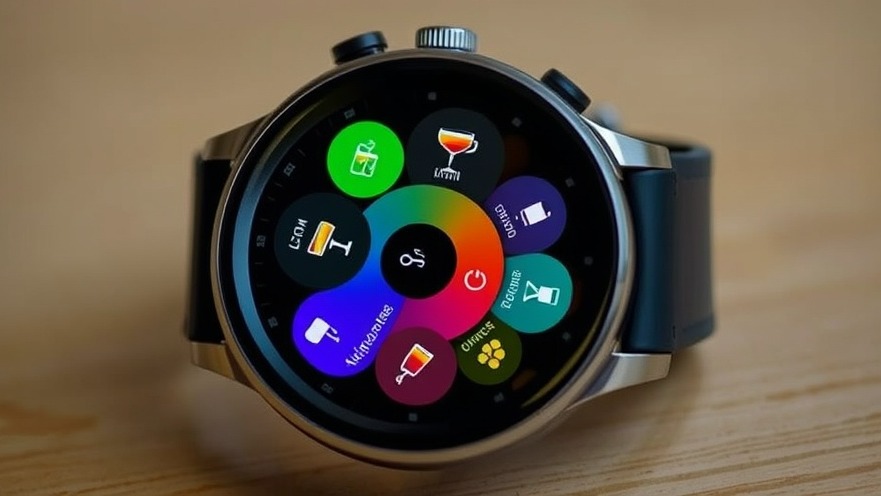
The Future of Alcohol Intervention: Smartwatches to the Rescue
Every day in the UK, around 70 lives are lost to alcohol-related causes, with the National Health Service (NHS) shouldering a staggering £3.5 billion annually in alcohol harm costs. As medical professionals, it is crucial to address this pressing issue with innovative solutions. A recent study from the University of Bristol shines a light on how smartwatch technology might revolutionize our understanding of alcohol consumption and how we can intervene more effectively.
Understanding the Limitations of Traditional Methods
The staple method for recording alcohol consumption among patients has been the Timeline Followback (TLFB). This method relies on participants accurately recalling their drinking habits over time, which can be problematic due to memory errors. Studies have shown that human memory often fails when it comes to precise recall about events, especially if they occurred days or even weeks in the past. With decreasing accuracy in recording patterns of alcohol intake, ineffective interventions may result, leaving healthcare practitioners struggling with inconsistent data.
Introducing AlcoWatch: A Technological Game Changer
The AlcoWatch, a smartwatch-based application developed by researchers at the University of Bristol, employs a groundbreaking method known as micro Ecological Momentary Assessment (mEMA). Unlike TLFB, mEMA prompts users to report their alcohol intake in real-time, significantly enhancing the accuracy of the recorded data. With this innovative approach, participants were surveyed five times daily over twelve weeks regarding their recent drinking behaviors. This method not only collects precise data but also engages users consistently, yielding a robust dataset.
Enhanced Engagement Through Wearable Technology
The results of the study indicated that participants exhibited higher engagement levels with the AlcoWatch compared to the TLFB method. Such engagement is crucial as it reduces missing data, ultimately providing researchers with a clearer picture of drinking behaviors and facilitating better alcohol intervention strategies. Participants' feedback revealed a strong preference for using the smartwatch over traditional methods, highlighting an important trend among demographics increasingly accustomed to digital tools.
Healthcare Implications: Bridging Socioeconomic Gaps
An essential finding from the study demonstrates differing engagement levels among socioeconomic groups, with lower engagement among participants from disadvantaged backgrounds. This presents a vital area for healthcare practitioners to focus on. As technology permeates our lives, it is important to ensure that lower socioeconomic cohorts are not left behind in digital health advancements. Smartwatch technology could serve as a means to bridge this gap, offering a platform for more accessible health interventions.
Future Innovations: What’s Next for Smart Health Technologies?
As wearable technology gains traction, the potential applications go beyond alcohol consumption monitoring; they could encompass a wide range of health and wellness metrics. Imagine a future where chronic disease management, mental health assessment, and preventive care can all be tracked and analyzed via smartwatches. By incorporating features that promote health awareness and temporal data collection, these devices could redefine healthcare delivery methods.
Facilitating Action: What Health Practitioners Can Do
For health practitioners interested in integrating technology into their practice, the AlcoWatch findings present a golden opportunity. Implementing digital health tools can enhance patient engagement and data accuracy. Healthcare providers already utilizing telemedicine might find similar tools beneficial for gainful interactions with their patients, particularly regarding alcohol-related health issues.
Final Thoughts: Embracing the Smart Health Revolution
In an era where technology continues to evolve, embracing advancements like smartwatch technology is pivotal. By integrating tools like AlcoWatch into health practices, healthcare professionals can gain deeper insights into patient habits and provide more effective interventions. As the trend toward digital health accelerates, staying informed about technologies that can improve patient outcomes is essential.
As a health practitioner, consider how you can leverage wearable technology to monitor your patients' alcohol consumption habits, promoting better health outcomes in your practice. Embrace these innovations and lead the way in improving patient care.
 Add Row
Add Row  Add
Add 






Write A Comment